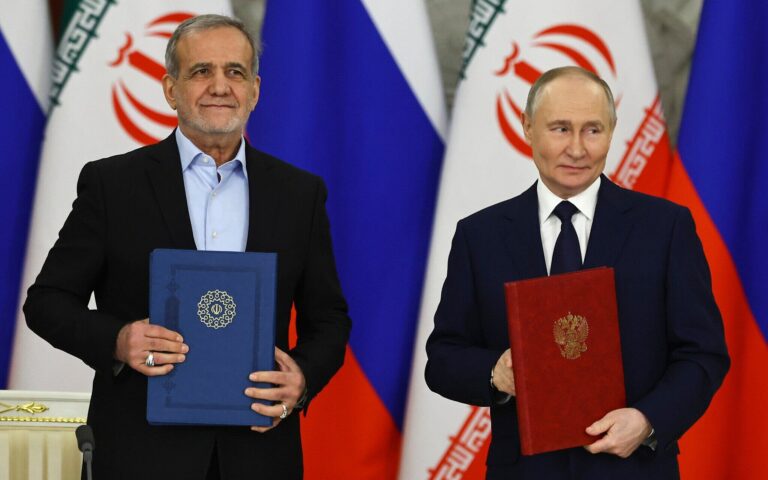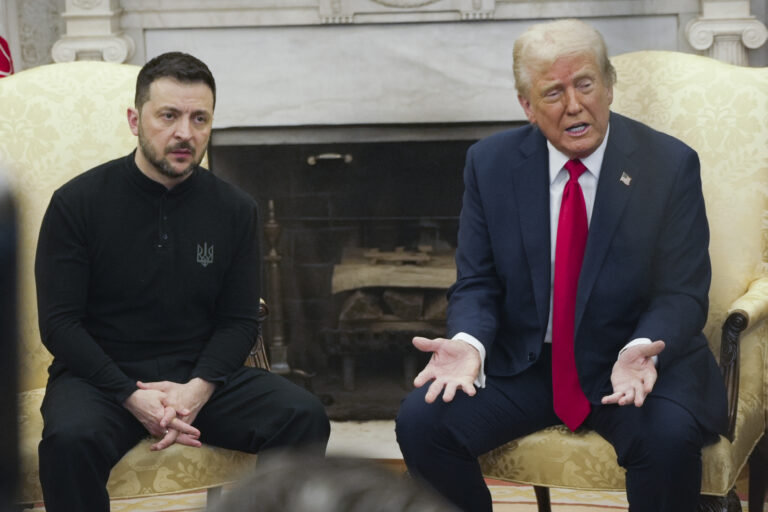 Facing lawmakers who suggested U.S. surveillance has gone too far, the national intelligence director on Tuesday defended spying on foreign allies as necessary and said such scrutiny of America’s friends — and vice versa — is commonplace.
Facing lawmakers who suggested U.S. surveillance has gone too far, the national intelligence director on Tuesday defended spying on foreign allies as necessary and said such scrutiny of America’s friends — and vice versa — is commonplace.
Another top intelligence official said the collection of phone records that prompted outrage across the Atlantic actually was conducted with the help of European governments. News reports that the National Security Agency had swept up millions of phone records in France, Spain and elsewhere were inaccurate and reflected a misunderstanding of “metadata” that was in fact collected by NATO allies and shared with the United States, the director of the NSA told a congressional hearing.
The nation’s post-Sept. 11 surveillance programs are coming under increased criticism at home and abroad, capped by recent revelations that the NSA monitored German Chancellor Angela Merkel’s cellphone and those of up to 34 other world leaders. Those reports relied on documents provided by former NSA analyst Edward Snowden.
Congressional leaders who have been staunch supporters of the NSA programs are now saying it is time for a close examination. The White House said Tuesday that President Barack Obama had ordered a full review of the programs and was considering changes.
National Intelligence Director James Clapper defended the secret surveillance that sweeps up phone records and emails of millions of Americans as vital to protecting against terrorists.
He played down European allies’ complaints about spying on their leaders, saying the allies do it, too.
“That’s a hardy perennial,” Clapper told a House intelligence committee hearing.
He said during his 50 years working in intelligence it was “a basic tenet” to collect, whether by spying on communications or through other sources, confidential information about foreign leaders that reveals “if what they’re saying gels with what’s actually going on.”
Committee Chairman Mike Rogers asked whether allies had conducted the same type of espionage against U.S. leaders. “Absolutely,” Clapper responded.
Asked about collection of foreign phone records, the NSA’s director, Gen. Keith Alexander, testified that the U.S. did not collect European records alone, as was reported over the past week to an outcry of criticism across Europe.
Alexander said the U.S. was given data by NATO partners, often collected from elsewhere around the world, as part of a program to protect military interests. He disputed that the program targeted European citizens, but did not offer specifics. He called the reports “completely false.”
As for efforts at home, the intelligence leaders defended sweeping up records of U.S. phone calls as necessary to combat terrorism. The Obama administration vigorously opposes efforts to curtail the internal spying programs that have angered some Americans.
Rogers urged lawmakers not to scrap an important investigative tool.
“We can’t ask the FBI to find terrorists plotting an attack and then not provide them with the information they need,” he said.
A bipartisan plan introduced Tuesday would end the NSA’s sweep of phone records, allowing the government to seek only records related to ongoing terror investigations. Critics both at home and abroad have criticized the current program as a violation of privacy rights.
White House press secretary Jay Carney declined to take a position on the legislation, put forward by Rep. James Sensenbrenner, R-Wis., and Senate Judiciary Chairman Patrick Leahy, D-Vt., with a broad array of support. Carney said the administration is working with Congress on “appropriate reforms.”
Asked about the reports of eavesdropping on world leaders, Obama himself said in a Fusion network television interview that the U.S. government is conducting “a complete review of how our intelligence operates outside the country.” He declined to discuss specifics or say when he learned about the spying on allies.
Another U.S. official said Obama did not know the NSA was monitoring Merkel’s communications until after his visit to Germany in June. That official said information about the surveillance of foreign leaders emerged in the course of the White House’s broader review of spying programs, triggered by media reports based on documents leaked by Snowden. The official was not authorized to discuss the matter by name and insisted on anonymity.
The White House says the United States isn’t currently listening to Merkel’s conversations and won’t do so in the future. Press secretary Carney wouldn’t say whether the U.S. is monitoring the calls of other friendly leaders or whether Obama thinks that sort of surveillance of allies should go on.
In rare agreement, Senate Majority Leader Harry Reid, D-Nev., and House Speaker John Boehner, R-Ohio, both said Tuesday that it was time for a thorough review of NSA programs.
Both have been strong supporters of the programs.
Sen. Dianne Feinstein, chairwoman of the Senate Intelligence Committee, called for a “total review of all intelligence programs” following the Merkel allegations.
Several longtime allies have joined Germany in expressing their displeasure about spying on their leaders.
Spain’s prosecutor’s office said Tuesday it had opened a preliminary inquiry to determine whether a crime was committed by NSA surveillance. French President Francois Hollande said the United States should not be eavesdropping on its allies but that U.S. officials were cooperating with Europe to fix the problem.
Belgian Prime Minister Elio Di Rupo’s office on Tuesday confirmed a report in De Standaard that at his most sensitive meetings the premier now is asking government ministers to leave their mobile phones outside the room.
(AP











4 Responses
If this is considered a valid argument by the US government, then can someone please explain to me why Pollard is still sitting in prison?
Because idiot he was an American employed by the government and he sold the info to. Foreign government. While every country spies on the other don’t get caught. Long prison terms
Isn’t this the reason that Jonathan Pollard has been sentenced to life in prison for so-called spying on a ‘friendly ally”. Bunch of hypocrites!!
Actually, it seems anyone who really wants to can use the internet to spy on anyone else. If you don’t want to be spied on, don’t use the internet. That means no use of telephones, email, world wide web, credit cards or banks. Only send “snail mail” (written on paper, preferably hand delivered the way it was in the 18th century before they had postal services). Only use cash, specie or barter. Do not use a drivers license or a credit card or a bank for any purpose whatsoever.
The US told the NSA to go check the internet for leads on terrorists – and they checked the whole internet. The leaders who gave the order probably didn’t understand how extensive the internet is (nu, a lot of rabbanim don’t either).